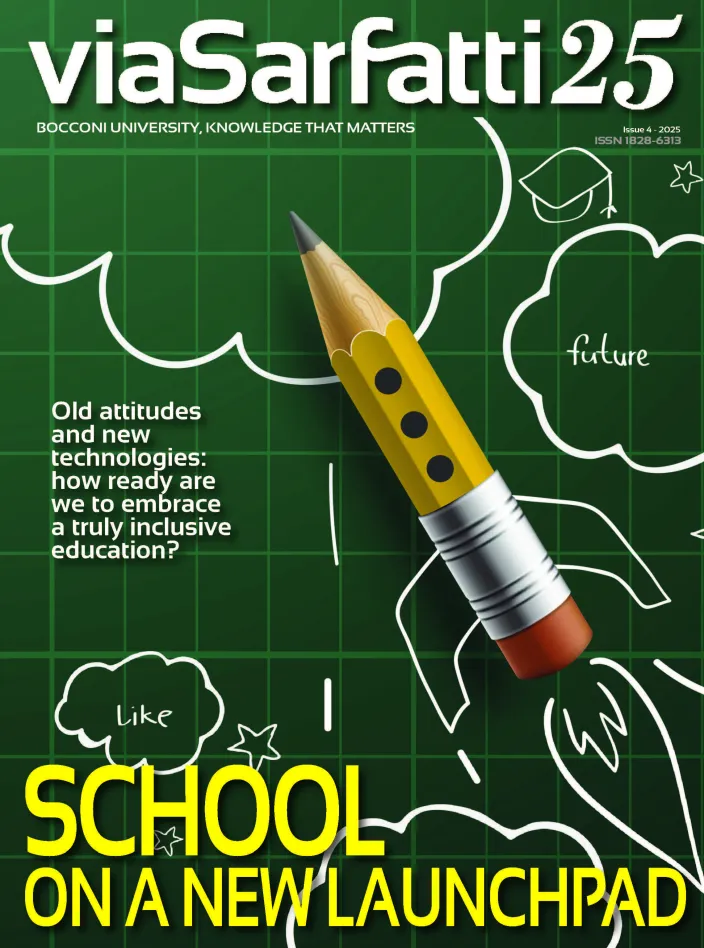
Why Girls Do Better in School?
For years, the gender gap in school grades has fueled a heated debate. While it is now widely recognized that female pupils tend to perform better than their male peers, especially in languages and the humanities, the real question is: how long does such advantage last? And is it closing?
The research paper titled "A Longitudinal Study of the Gender Gap in School Grades via Flexible Bayesian Beta Regression" by Laura Bondi (Human Technopole), Beatrice Franzolini (Institute for Data Science and Analytics, Bocconi University) and Marco Palma (MRC Biostatistics Unit, University of Cambridge) seeks to answer these questions.
The study is unique for two reasons: it analyzes longitudinal data, observing the academic careers of hundreds of students over time, and employs a sophisticated statistical model — a Bayesian beta regression with splines — to account for both individual differences and long-term trends.
The Rimini Case: Five Years, 1,920 students, a female advantage
The dataset used comes from RiminiInRete, a school network in the province of Rimini that has been systematically collecting students' first-semester and final grades since 2015. The authors selected a stratified sample of 1,920 students, balanced by gender and year of birth, analyzing over 6,300 observations collected between 2014 and 2019.
The results confirm the existence of a gap: on average, female students achieve higher grades than their male peers throughout their entire school career going from elementary school to high school. In 2014-2015, for example, on a scale of 0 to 10, the average advantage was 0.45 points; in 2018-2019, it was still significant but shrank to 0.33 points.
The gender gap not only exists, but tends to widen during transitions from elementary school to middle school, and from middle school to high school. It is interesting to note, however, that among younger cohorts, the gap appears to be narrowing slightly: a sign that something is moving.
Differences that change with age and time
A key aspect of the study is the observation of dynamics across school years. Female students are less affected by drops in school performance that is typical of transitions between one level of education to the next. Furthermore, despite starting at similar levels, males tend to accumulate greater variability in grades over time. Another interesting finding is that the variability in results is slightly greater among females: this may indicate greater heterogeneity, but also greater exposure to complex and sometimes inconsistent evaluation mechanisms.
Toward a new understanding of the gender gap
This work — which presents preliminary results from an ongoing, broader study — lays the foundations for new questions. For example, how does the gender gap vary by subject? And how have Covid and remote learning affected the distribution of academic achievement? The team plans to extend the dataset to 2023, to include the school years affected by the pandemic. One of the next objectives is to analyze the impact of remote learning and the lockdown on gender dynamics. It is likely that the gaps have widened, but only an empirical analysis will be able to verify this.
A statistical model for schools
Beyond the specific evidence, the study also introduces an innovative methodology for educational research. The Bayesian beta regression model is particularly effective for panel data such as school data, which are limited in scale and exhibit strong individual heterogeneity. This is no small technical detail: it means providing educators, school administrators and policymakers with more refined tools to interpret educational data, identify critical areas and develop more targeted policies.

Inside the School System: Inclusion, Exclusion and Decisions
From classroom discrimination to teacher bias, from Artificial Intelligence to frontal teaching, four studies by Bocconi researchers and an interview with Yellowtech’s founder serve to open the black box of...

